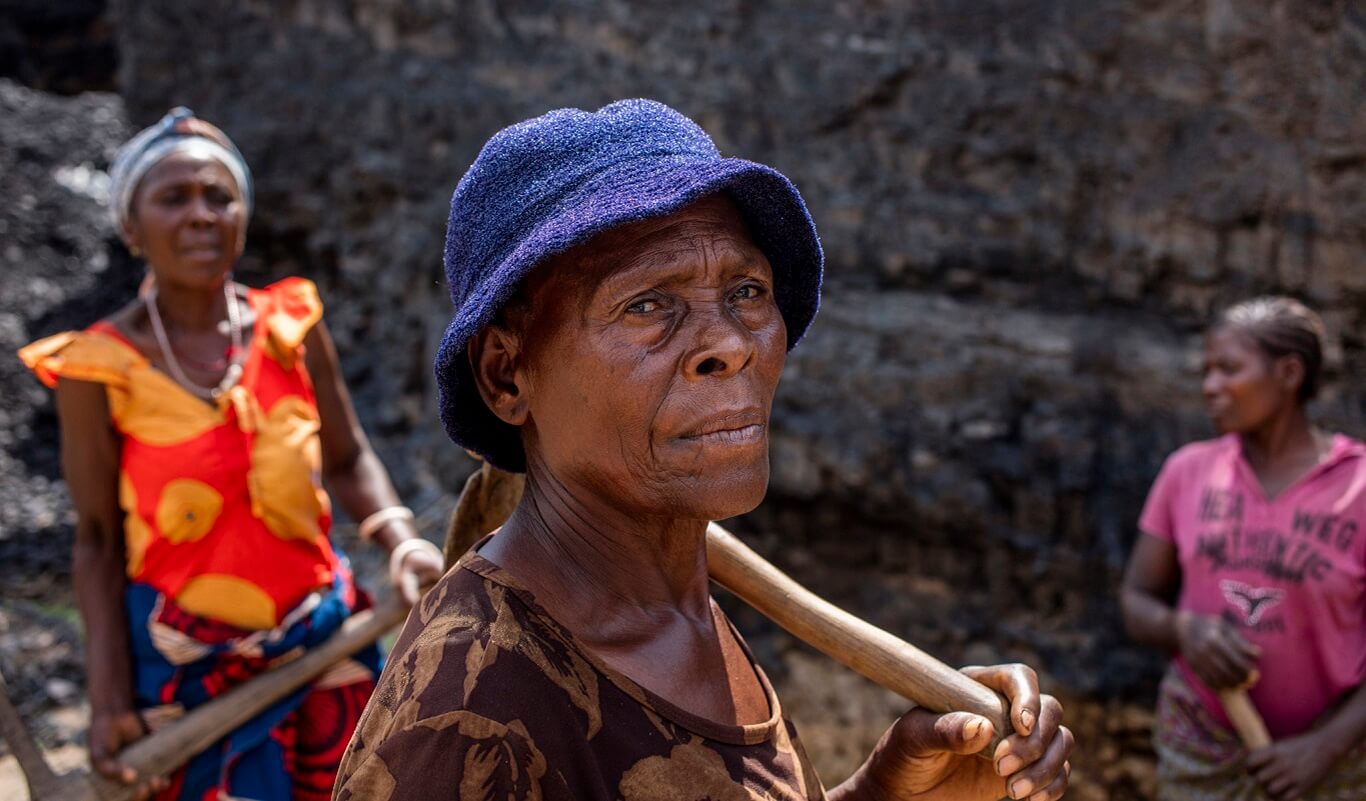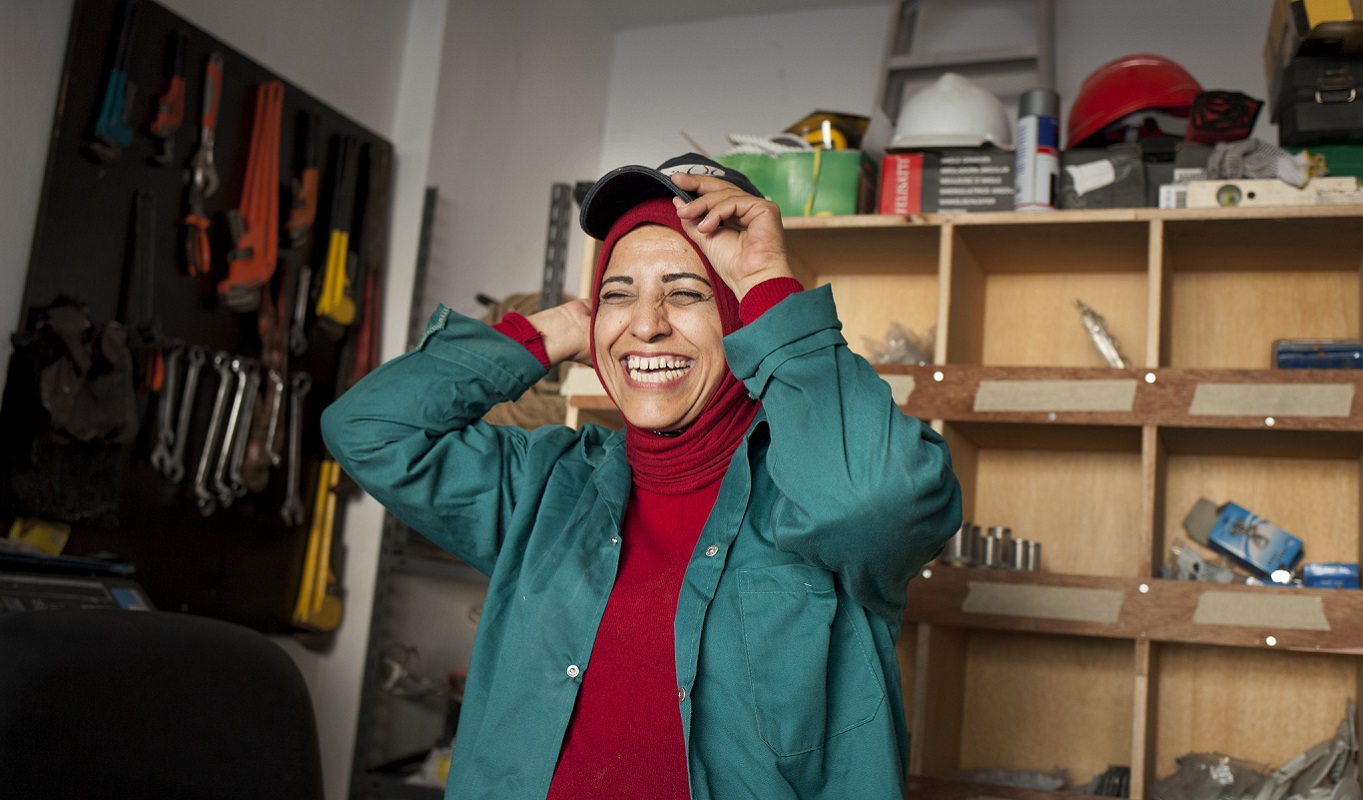Investing in women’s entrepreneurship is not enough
So you want to invest in women and girls. You want to improve lives and tackle deep-seated problems. But will you be practical and ambitious, tokenistic or transformational?
We think some of what we have learned from years of in-depth work addressing women’s economic empowerment is relevant for investors and entrepreneurs too.
1. Understand the reality of women’s lives and what is important to them.
Reliable work: We find that investors and businesses tend to focus on improving working conditions – health and safety, operational issues and so on. Of course this is important, but don’t forget about employment conditions. Are women’s work opportunities seasonal, precarious or unpredictable? This can make women more vulnerable. Assess whether your investments support women to have equal access to stable and secure jobs.Balancing paid and unpaid work: The biggest but most invisible reason women drop out of training or employment opportunities is their disproportionate responsibility for unpaid care and domestic work. Are we saying that every business needs to provide a daycare on site, as Oxfam does at its office in Oxford? No, not necessarily. But do make an effort to understand the unpaid care hours that women do in a day. Can this be reduced or redistributed? Ensuring they have a reliable tap near home may be the best thing employers can do to free up women’s time. Oxfam’s signature Rapid Care Analysis tool has been used by programs and organizations worldwide to analyze unpaid care work: who does it, what tasks are most problematic and what local actions are needed.
2. Enable women’s voice and decision-making.
Women making decisions: Get women into senior, decision-making roles. In our experience running the Enterprise Development Programme, we have found that having women on enterprise boards or senior management teams is key to ensure enterprise policies and processes help to remove barriers to women and generate opportunities for more women to engage and benefit.Women’s voice at all levels: It’s not just women at the top of the business that need a voice. Small grants and targeted support can go a long way to enabling this. In Nepal, we used small grants alongside our main investment in farmer cooperatives to set up Participatory Learning Centres. Through the centres, women cooperative members could identify the barriers to their effective participation and plan specific actions to address those, such as requesting public support to set up and manage daycare centres or laundry facilities.
Having ways for women to speak, and for you to listen, can also help you to act in case things don’t go as planned, which brings us to…
3. Prepare for unintended negative consequences.
Unfortunately, even the best intentions and strongest evidence-based initiatives can sometimes make life worse for some women and girls.
Formalization of work: This is usually regarded as progress, bringing secure contracts, social insurance and legal rights. But in one case we know of, a majority-female workforce turned into a 100%-male workforce when it was formalized and brought in-house. So, check if your other Environmental, Social and Governance (ESG) requirements on investees may unintentionally make things tougher for women.

Violence against women is not only a barrier to women engaging in work, but sometimes an unintended consequence of it. Sadly, our work shows us time and again that as women get more economically empowered, some suffer from new or increased violence. This may be because men start to feel their breadwinner roles being threatened by their wives’ new income, or because women suffer new forms of violence in getting to, or being at, work.
This is not inevitable. Employers need to think about what they can do to support women in feeling safe to take up work. Quick wins may involve shifts in travel times, adjustments to travel logistics, safety apps, more confidential or cashless means of payment, and zero tolerance for harassment at work.
Actively involving the community in challenging social norms, particularly husbands, will achieve more. In Zambia, our Gendered Enterprise and Markets program targeted women with new income-generating opportunities and invited their husbands to sessions to give them a better understanding and appreciation of what their wives were doing and how it was benefiting their households and communities. Men even took up new roles as champions to end violence against women. Cultural and social norms, as rigid as they may seem, can be challenged and changed to enhance women’s lives, and it’s not only NGOs that can do this.
This brings us to our final top tip.
4. Contribute to changing culture and systems.
Your investments will not operate in a vacuum, isolated from both the cultural/informal rules as well as the formal rules of that context. Though we don’t normally think of investors as key agents to drive system change – changes in the informal and formal rules that drive markets and behaviours – you can contribute to pushing change.
Setting new standards: Progressive initiatives can set new precedents that nudge others along. In Ethiopia, our enterprises are challenging local norms by guaranteeing equal pay for the same work for women and men.
Collaboration: We have worked with a wide variety of companies who are committed to working as part of multi-stakeholder groups to shape whole sectors to be more inclusive. In Bangladesh, for instance, Oxfam convenes a platform that provides a long-term avenue to influence the National Dairy Development Policy to better respond to the needs of women smallholder dairy farmers.
No one expects progressive businesses to shift culture and systems on their own. But businesses are invaluable partners for other change agents, such as policymakers or civil society. Businesses can implement gender-equal policies, use marketing to challenge regressive social norms or simply nudge business behaviour forward.
When sourcing or supporting investees, have you ever asked them about their appetite for this? Will you add it to your list and be part of the change?


